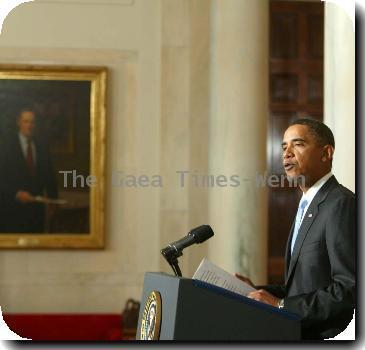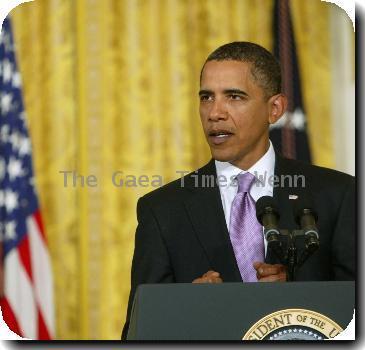China warns US over future Taiwan arms sales, reaffirms suspension of military exchanges
By APThursday, February 25, 2010
China warns US over future Taiwan arms sales
BEIJING — China warned the U.S. on Thursday against any future arms sales to Taiwan and reaffirmed its decision to suspend military exchanges over Washington’s plan to sell $6.4 billion in military hardware to the island.
China demands that the U.S. “speak and act cautiously” to avoid further damaging ties and upsetting relations between Beijing and Taiwan, Defense Ministry spokesman Huang Xueping was quoted as saying by the official Xinhua News Agency.
Huang also said there had been no change in Beijing’s decision last month to put off military contacts to protest the Obama administration’s decision to sell helicopters, missiles and other weapons to Taiwan.
“The U.S. side bears full responsibility for the current difficulties in exchanges between the Chinese and U.S. militaries,” Huang said.
Huang’s comments follow the publication this week of a U.S. Defense Intelligence Agency report stating that Taiwan’s air defenses against China were likely inadequate.
Many observers saw the study as justification for the possible sale of advanced fighter jets to the self-governing island democracy. China considers Taiwan part of its territory and has vowed to conquer it by force if necessary.
Such U.S. reports are an outgrowth of a law — passed 30 years ago when Washington cut ties with the island to establish relations with Beijing — requiring the United States to ensure Taiwan has an adequate defense against Chinese threats.
China resents all U.S. arms sales to Taiwan, seeing them as interference in its internal affairs. In response to the latest sale, Beijing, for the first time, also threatened commercial retaliation against the aerospace companies that make the weapons offered in the latest deal.
Speaking at a regular news conference Thursday, Foreign Ministry spokesman Qin Gang repeated China’s claims that the Taiwan arms sales undermine Chinese security and demanded the U.S. take action to repair ties.
“The people who tied the knot should untie the knot,” Qin said.
The Taiwan arms sale is one of several issues that has roiled China-U.S. relations this year, including trade disputes, President Barack Obama’s meeting last week with exiled Tibetan leader the Dalai Lama, and cyberspying accusations from Google Inc.
Huang criticized media reports linking the People’s Liberation Army with cyber attacks on foreign governments and corporations, calling them “absolutely baseless, extremely irresponsible speculation with ulterior motives.”
Also Thursday, China’s Commerce Ministry accused Washington of abusing trade relief measures after U.S. regulators increased import duties on Chinese-made steel pipes to offset what it said were improper subsidies to manufacturers.
“These seemingly fair-trade measures in fact are abuses of trade relief measures which are intended to protect the domestic economy,” said Commerce Ministry spokesman Yao Jian, referring to a series of recent U.S. trade cases against Chinese exporters.
Yao said the number of U.S. antidumping and anti-subsidy cases against Chinese goods rose by more than half last year to 23, while the value of goods affected rose by eight times to $7.6 billion.
Tags: Asia, Barack Obama, Beijing, China, East Asia, Geography, Greater China, North America, Taiwan, Territorial Disputes, United States, Weapons Administration





